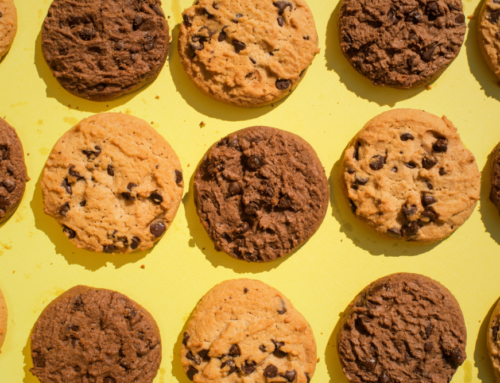Sometimes I’m not sure what’s worse, knowing nothing about nutrition or knowing a lot.
On the one hand, knowing nothing increases the odds that you’ll make more of your food decisions based on advertising, package design and size and positioning of supermarket displays. That probably means you’ll eat a lot of junk food, fast food and other highly processed foods. That’s not very good for your body.
On the other hand, if you know a good bit about nutrition, you may find yourself swaying in the breeze with every new bit of knowledge you acquire, wondering and worrying whether you’re really eating the right way. If you try to eat not just for health, but also for weight control, then you can ramp up that wondering and worrying several notches. It’s enough to make you neurotic. That’s not very good for your mind.
I’m not immune to this. Not at all. And let me tell you something: When you get to one of those benchmark points in your life when your body starts behaving differently than it did before (post-adolescence, early adulthood, post-pregnancy, peri-menopause, post-menopause…OK, I guess most of these apply to women), you become even more neurotic, especially if what worked before in terms of diet and exercise just doesn’t work anymore.
Of course, our culture doesn’t help matters much. I’m a bit behind in my reading of Jan Chozen Bays’ Mindful Eating, but I’ve been really intrigued by the concepts of cellular hunger (which I’ll talk about tomorrow) and mind hunger:
“When we eat based upon the thoughts in our mind, our eating is usually based in worry. …The voices that comprise mind hunger are important to hear but should be taken with a large grain of salt. ‘You should start the day with a big breakfast.’ ‘You should eat six times a day.’ ‘You shouldn’t eat past noon.’ ‘Sugar is poison.’ “
I agree with that notion. Each of those “edicts” mentioned above are good advice for some, but not necessary for others. Plus, if you’re interested in the science of nutrition, you know that the latest “scientific thinking” changes as knowledge changes. This is based on the evolution of questions (hypotheses) being asked, as well as the evolution of the laboratory technology that is available to look for answers to those questions. When a bit of nutritional dogma is debunked, it’s not (necessarily) that the scientists responsible for that dogma were stupid or wrong or did shoddy research…sometimes they didn’t have the resources or the benefit of advancing knowledge that a new generation of scientists has. Fascinating…and yet maddening! That’s why I try to stick to a varied diet of nutritious foods, to not eat too much, and to not get pulled too far one way or the other with this nutritional theory or that one. It’s hard, though!
I don’t usually get nutrition information from style blogs, but as I was catching up on my post-vacation blog reading last week, I sat up straight when I read this quite observant “changing lifestyle” post from French illustrator and fashion photographer Garance Dore. Part 1 looks at the differences between how New Yorkers eat and how Parisians eat. Part 2 looks at how adopting the New York (read: American) mindset about food and self-image is enough to make you a babbling neurotic idiot. I’ve been reading Garance’s blog for years, and she is just lovely. And even more lovely for honestly sharing some of the dark corners of her newly food-obsessed mind.







